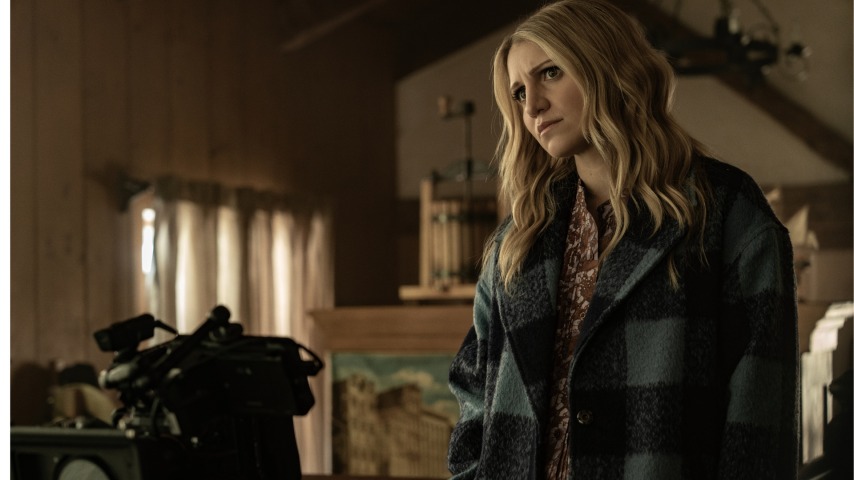True-crime drama Happy Face suffers from an identity crisis
Annaleigh Ashford and Dennis Quaid anchor this middling Paramount+ series.
Photo: Ed Araquel/Paramount+
Happy Face is a true-crime saga with lofty aspirations. The protagonist, Melissa Reed (Annaleigh Ashford), pretty much spells out the series’ thesis during an in-universe talk-show appearance when she claims, “We want to tell stories that no other shows are telling.” Paramount+’s project succeeds to an extent. It movingly spotlights Melissa’s struggles regarding her serial-killer father’s ghastly crimes even years after he’s been behind bars. It’s a unique insight into the genre that Happy Face doesn’t quite take advantage of, sadly devolving into a generic thriller over eight unnecessarily lengthy episodes.
Created by Jennifer Cacicio and co-produced by Robert and Michelle King, Happy Face suffers from an identity crisis. This is unfortunate because the Kings, in particular, have proven how a singular vision and voice can set a narrative apart (as most recently seen in Evil and Elsbeth). Happy Face tries hard to be a twist-filled serialized procedural and also a tear-jerker of a family drama (with an added empathetic lens on victims and their loved ones). The show feels crucial when it focuses on the latter. But the myriad subplots overlap and turn into an uninventive, slow-moving hodgepodge that is watchable only because of its performances.
Loosely based on the life of Melissa Moore (a producer on Happy Face), the series centers on her attempts to stay away from her maniacal father. When she was only 15, Keith Jesperson (Dennis Quaid, rocking an unnerving accent and some jarring de-aging) was arrested for murdering eight women in the ’90s. As an adult, Melissa has kept her familial association with him hidden from her kids and colleagues. But her secret is exposed when Keith worms his way back into her life. He claims he had a ninth victim whose details he’ll only reveal to his estranged daughter. Conveniently, Melissa works as a makeup artist on that aforementioned fictional talk show, so she teams up with determined producer Ivy (Tamera Tomakili) to investigate Keith’s latest confession.
Melissa is convinced he’s lying to get close to her again, but she can’t morally pass up the chance for justice. It is especially important because the wrong man has been on death row for decades for a crime Keith seems to have committed. So one part of the story becomes about freeing Elijah (Damon Gupton) from a wrongful sentence. This begins a back-and-forth between Melissa and Keith as she strives to find the truth.









![HBO teases new Euphoria, Larry David, and much more in 2026 sizzle reel [Updated]](https://img.pastemagazine.com/wp-content/avuploads/2025/12/12100344/MixCollage-12-Dec-2025-09-56-AM-9137.jpg)






























